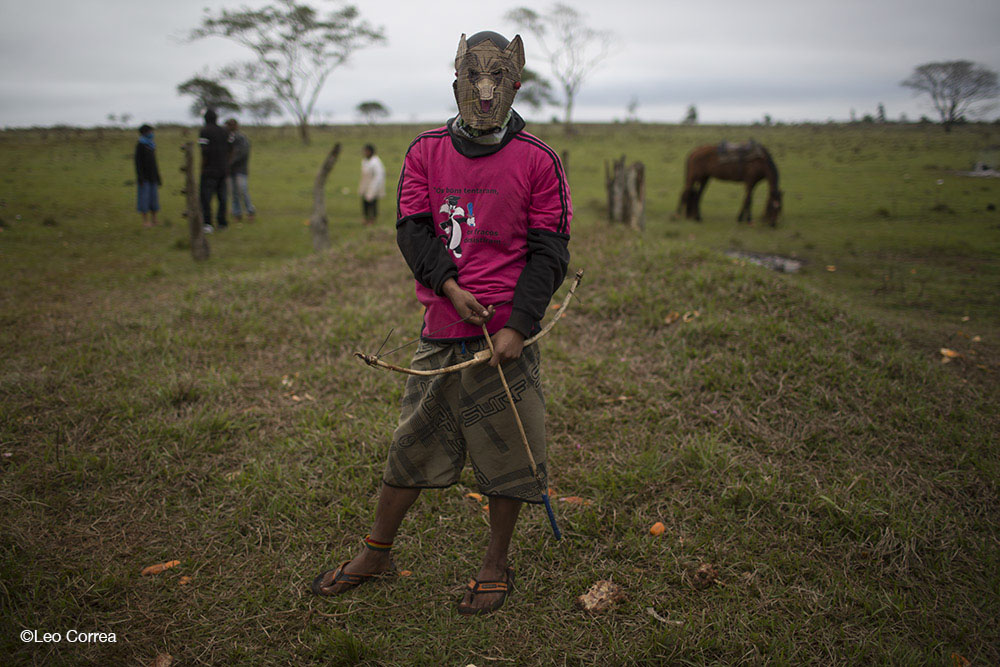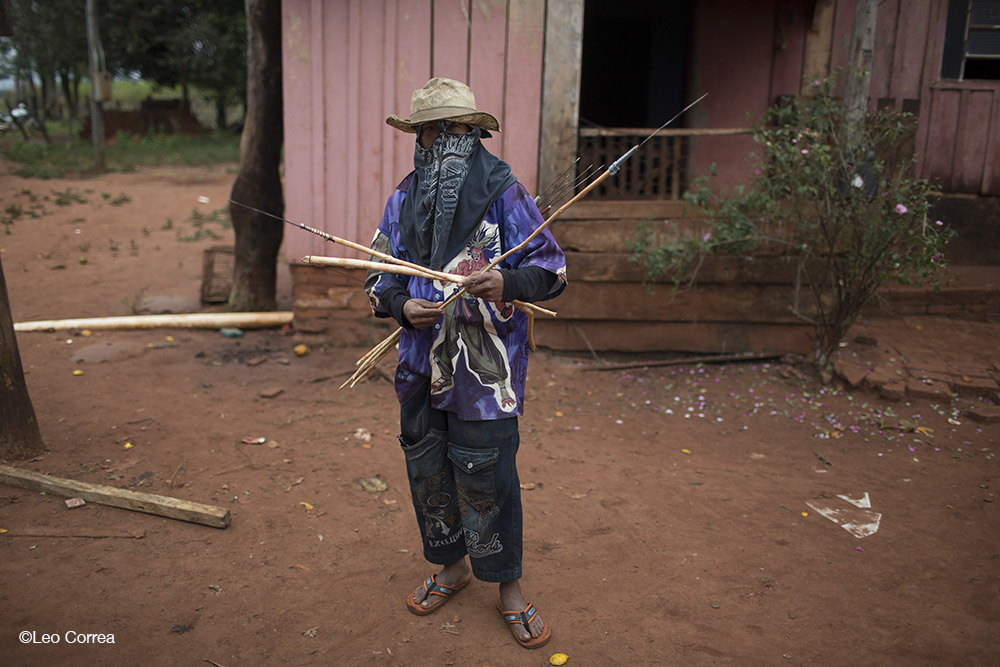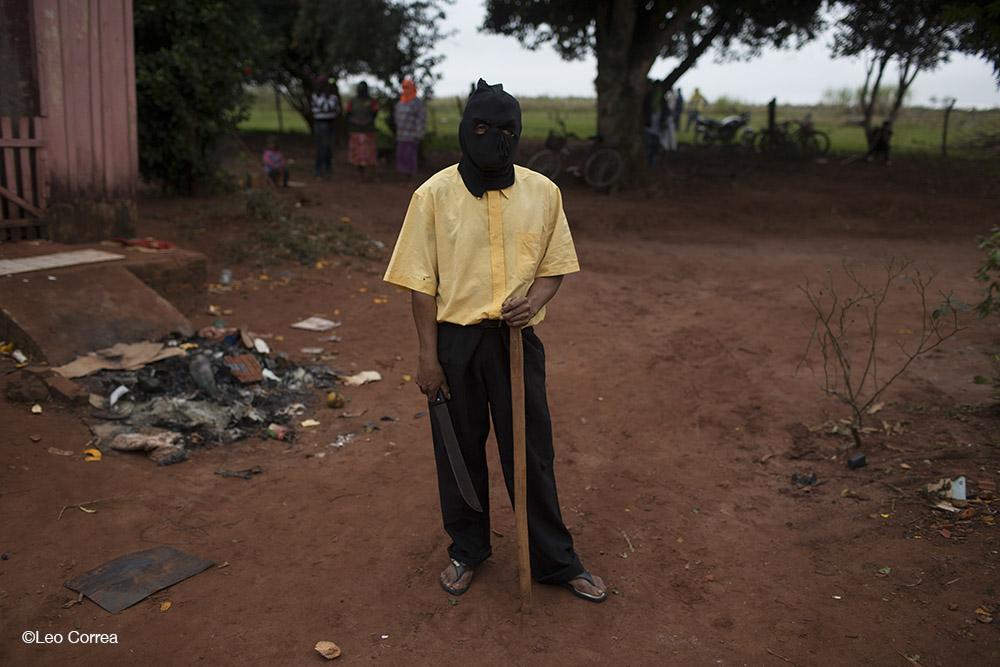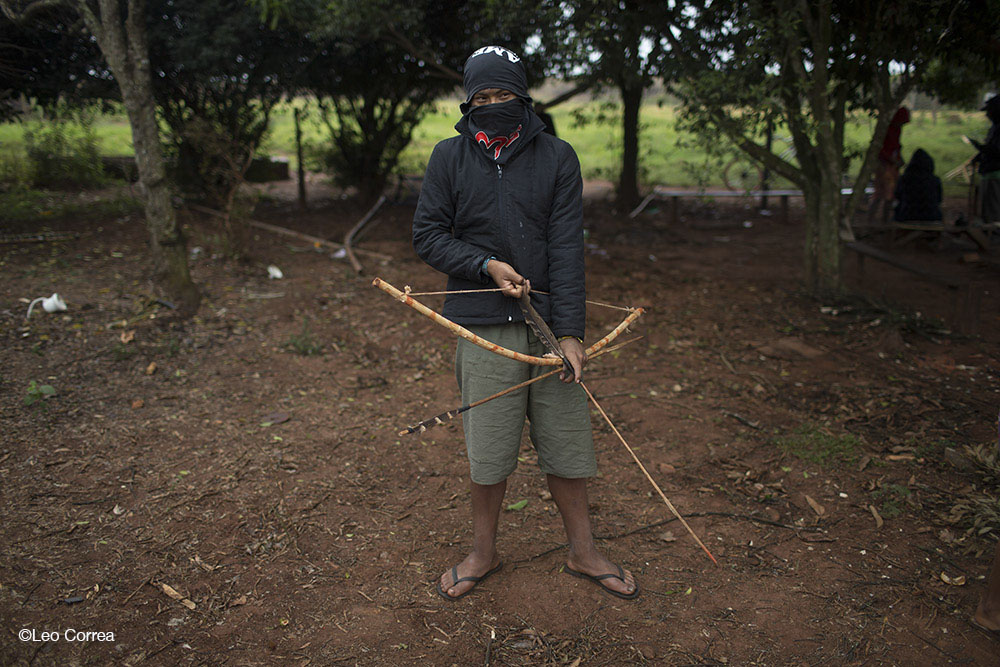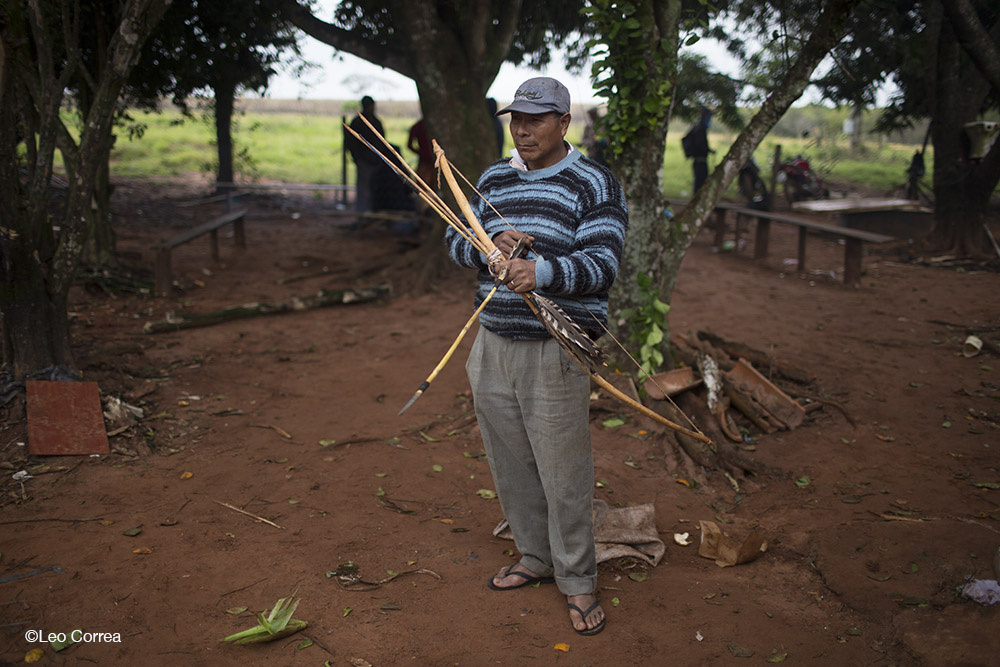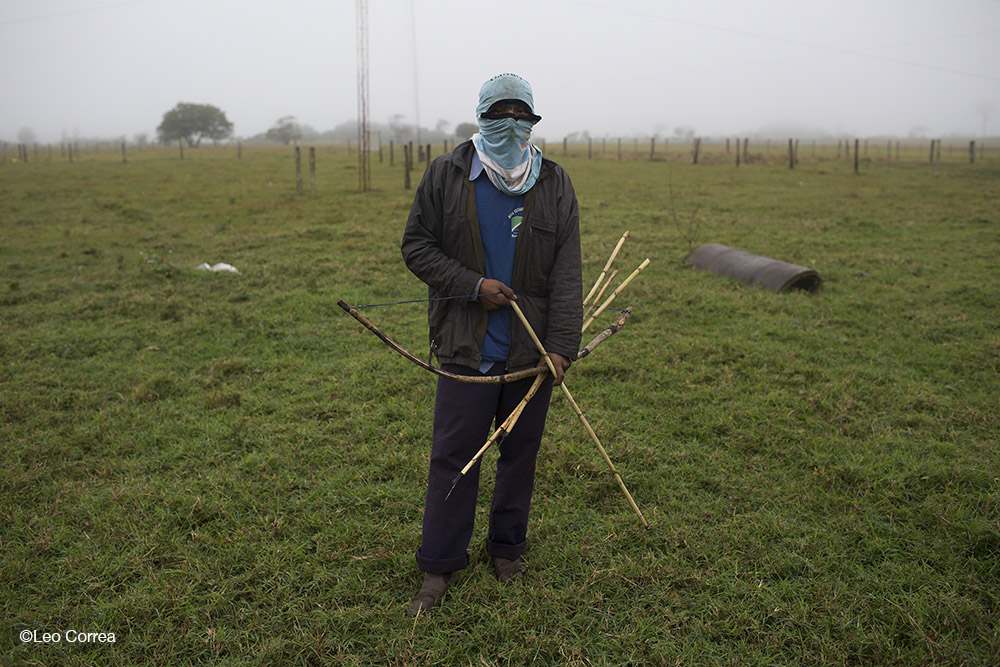Warriors of Brazil
Indigenous of the Guarani Kaiowa ethnic group stand in guard carrying bow, arrows and sticks to respond to any stranger that try to attack them in the occupied farms. What could be understood like a weakness or simple use of ineffective weapons against pistols and rifles, is in reality a symbol of strength and resistance They stand proud as they wield their weapons like their ancestors, fostered by a courage rooted in spiritual strength related to their ancestral beliefs.
“They defend sweet causes such as to save the Nature. They don’t want to see disappear the forest where they can find the animals, the river, the freshness of life and the green” explains Matias Rempel, 31-years-old missionary at CIMI, who has been working last 2 years in the region. But, “today the death is the most close neighbor of the Kaiowa indigenous”, completes Rempel.
There is a violent conflict on going in Brazil that has killed 757 people, since 2003 to 2016, according the CIMI, Conselho Indigenista Missionario, that reads in Portuguese Missionary Indigenous Council. Just one side are dying in a war for lands in Brazil.
The indigenous are claiming the 55.600 hectares recognized in a study of FUNAI (Indigenous National Foundation). This governmental institution is the authority for the studies for the demarcation of the indigenous territories.
On June 14th, Clodiodi Rodrigues de Souza, 26-years-old, a member of the same ethnic group was killed during a farmers onslaught to cast out the indigenous that was occupying the farm. Since then they are risking their lives in, at least, 10 “retakings” areas which they call Tekoha, that means in Guarani language: “the place of being, where they live”.
“We are warriors for our right, we aren’t warriors to take the life of a person”, explains Mendes. “The farmers say that they are warriors too. In fact they are because they kill and they torture”, completes, Mendes
